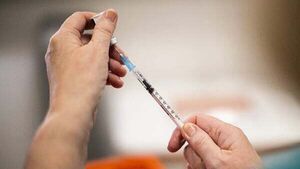Elderly woman had life-threatening complications after Covid vaccine, new study shows

Sarah Slater
An elderly Irish woman presented with a life-threatening kidney and lung complication two days after receiving a Covid-19 vaccine, a new study shows.
The 78-year-old woman presented to the emergency department at University Hospital Galway (UHG) coughing up blood along with a fever, sudden shortness of breath and was found to be in type one respiratory failure.
This was two days after the second dose of her Covid-19 vaccine. She had received her second dose of the Pfizer-BioNTech Covid-19 vaccine.
Reports have documented vaccine-associated adverse effects from various vaccines including cases of kidney injury, in some individuals following vaccination.
Co-authors of the study, Glomerulonephritis with Positive Anti-Glomerular Basement Membrane Antibodies following Covid-19 Vaccine, in this month’s Irish Medical Journal point out that “although rare, these vaccine-associated events warrant continued monitoring” to better understand “potential mechanisms of kidney injury” linked to vaccination.
The lady was initially treated for a lower respiratory tract infection. Following a further episode of coughing up blood, a blood vessel damage screen was carried out.
Obtaining tissue samples was considered however, due to the invasive nature of the procedure and clinical improvement being seen, further analysis was deemed unlikely to guide further clinical intervention.
A diagnosis of Goodpasture’s Syndrome was made and she was treated with IV Methylprednisolone for three days with seven sequential sessions which stopped her coughing up blood and improved kidney function.
Goodpasture syndrome is a rare autoimmune disorder in which your body mistakenly makes antibodies that attack the lungs and kidneys. It most often occurs in people aged 20 to 30 or older than 60. It can be fatal if not quickly diagnosed and treated.
The co-authors explained: “Retrospective studies have shown when aggressive treatment is commenced early in the disease process, the majority of patients have good renal outcome.”
They highlight that this case provides “support for a potential association between the BNT162b2” vaccine and onset of this disease.
Scientific monitoring the safety of medicines and taking action to reduce the risks and increase the benefits of medicines such as Covid-19 vaccines will be “important to determine the incidence of this potential adverse event,” the authors added.




